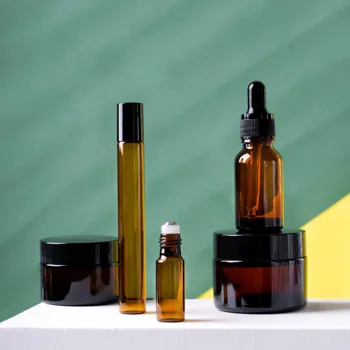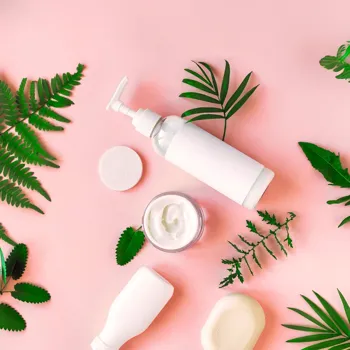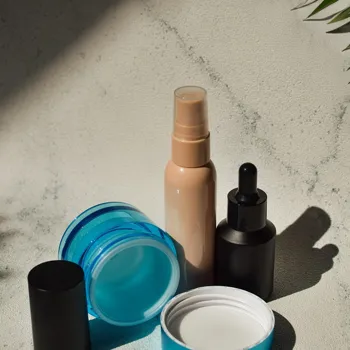Unravel the mysteries of skincare ingredients and create a personalized routine for glowing skin. Decode labels and harness the power of key ingredients. Discover the science behind skincare for a radiant
complexion!
In a country obsessed with beauty and glowing skin, the shelves are overflowing with skincare products promising miraculous results. But how many of us really understand what's inside that pretty bottle?

It's time to ditch the confusing marketing jargon and delve into the science behind skincare ingredients. After all, informed choices are the key to achieving healthy, radiant skin. Don't just blindly trust the advertisements; learn to read the labels and understand what your skin truly needs.
This guide will empower you to navigate the world of skincare, helping you make the right choices for your unique skin type and concerns. Let's uncover the secrets to building an effective and safe skincare routine, one ingredient at a time.
Decipher skincare ingredient lists for effective product choices
The ingredient list on your skincare product might seem like a daunting collection of long, unpronounceable words. But fear not! It's actually a goldmine of information. In India, regulations require ingredients to be listed in descending order of concentration.

This means that the ingredient listed first has the highest concentration in the product, while the ingredient listed last has the lowest. So, if a product claims to contain a "miracle ingredient," check its position on the list. If it's near the bottom, its actual impact might be minimal.
Key terms to watch out for include humectants (draw moisture to the skin), emollients (soften the skin), and occlusives (create a barrier to prevent moisture loss). Understanding these basic categories will give you a head start in decoding the ingredient list.
Also, pay attention to potential irritants like fragrances and alcohol, especially if you have sensitive skin. Remember, the fewer the ingredients, the lower the chance of sensitization.
Exploring effective skincare ingredients like Vitamin C, hyaluronic acid, retinoids, niacinamide, and ceramides
Certain ingredients have consistently proven their effectiveness in addressing various skin concerns. Let's explore some of the most popular and well-researched ones. Vitamin C, a potent antioxidant, brightens the skin, protects against free radical damage, and boosts collagen production.

Hyaluronic acid, a humectant, attracts and holds moisture, plumping up the skin and reducing the appearance of fine lines. Retinoids (Vitamin A derivatives) are renowned for their anti-aging and acne-fighting properties, promoting cell turnover and reducing wrinkles.
Niacinamide (Vitamin B3) strengthens the skin barrier, reduces inflammation, and minimizes pores. Ceramides help to restore and maintain the skin's natural protective barrier, preventing moisture loss and improving overall skin health.
These are just a few examples, and each ingredient works differently to target specific skin concerns. Researching these ingredients by individual is important for effective skin care.
Sunscreen is essential year-round in India for UV protection
Sunscreen isn't just for sunny beach days; it's a year-round essential for protecting your skin from harmful UV rays. In India, where the sun shines bright for a significant portion of the year, sunscreen is even more crucial.

Look for broad-spectrum sunscreens that protect against both UVA and UVB rays. UVA rays contribute to aging, while UVB rays cause sunburn. Choose a sunscreen with an SPF of 30 or higher.
SPF (Sun Protection Factor) indicates how much longer it will take for your skin to burn compared to if you weren't wearing sunscreen. Remember to apply sunscreen generously and reapply every two hours, especially if you're sweating or swimming.
Regular sunscreen use is the best defense against premature aging, sunspots, and skin cancer. It’s an investment into your skin's health that will pay off dividends in the long run. It works as a shield and protects against all the damage which is expected to happen.
Understanding Your Skin Type for Proper Skincare
Before you start slathering on every product you see advertised, it's crucial to understand your skin type. Is your skin oily, dry, combination, sensitive, or normal? Oily skin tends to produce excess sebum, leading to shine and breakouts. Dry skin feels tight and may flake.
Combination skin exhibits both oily and dry areas, typically with an oily T-zone (forehead, nose, and chin) and dry cheeks. Sensitive skin is easily irritated by certain ingredients or environmental factors. Normal skin is well-balanced and doesn't experience excessive oiliness or dryness.
Once you know your skin type, you can choose products specifically formulated for it. For example, oily skin benefits from lightweight, oil-free moisturizers, while dry skin needs richer, more emollient creams. This helps in providing adequate care for particular types of skin.
Common skincare mistakes to avoid for healthy skin
Even with the best intentions, it's easy to fall into common skincare pitfalls. Over-exfoliating can strip the skin of its natural oils, leading to irritation and dryness. Using too many active ingredients at once can overwhelm the skin and cause breakouts.

Neglecting to patch-test new products can result in allergic reactions. Not removing makeup before bed can clog pores and contribute to acne. Furthermore, believing in baseless claims that are spread via means of social or personal circles. The rule of thumb should be to research and understand.
Avoiding these mistakes will ensure that you are improving your skin health and not damaging it.
Creating a simple skincare routine for glowing skin
Creating a skincare routine can seem overwhelming, but it doesn't have to be. Start with the basics: cleanser, moisturizer, and sunscreen. In the morning, cleanse your face with a gentle cleanser, apply a moisturizer suitable for your skin type, and finish with a broad-spectrum sunscreen.

In the evening, cleanse your face again to remove makeup and dirt, apply any targeted treatments (such as serums or retinoids), and end with a moisturizer. Exfoliate once or twice a week to remove dead skin cells. Remember, consistency is key.
It takes time to see results from skincare products, so be patient and stick to your routine. Furthermore, it is important to stay hydrated by drinking plenty of water. This is very important for a natural glow on the skin.
AI Generated Content. Glance/InMobi shall have no liability for the content












